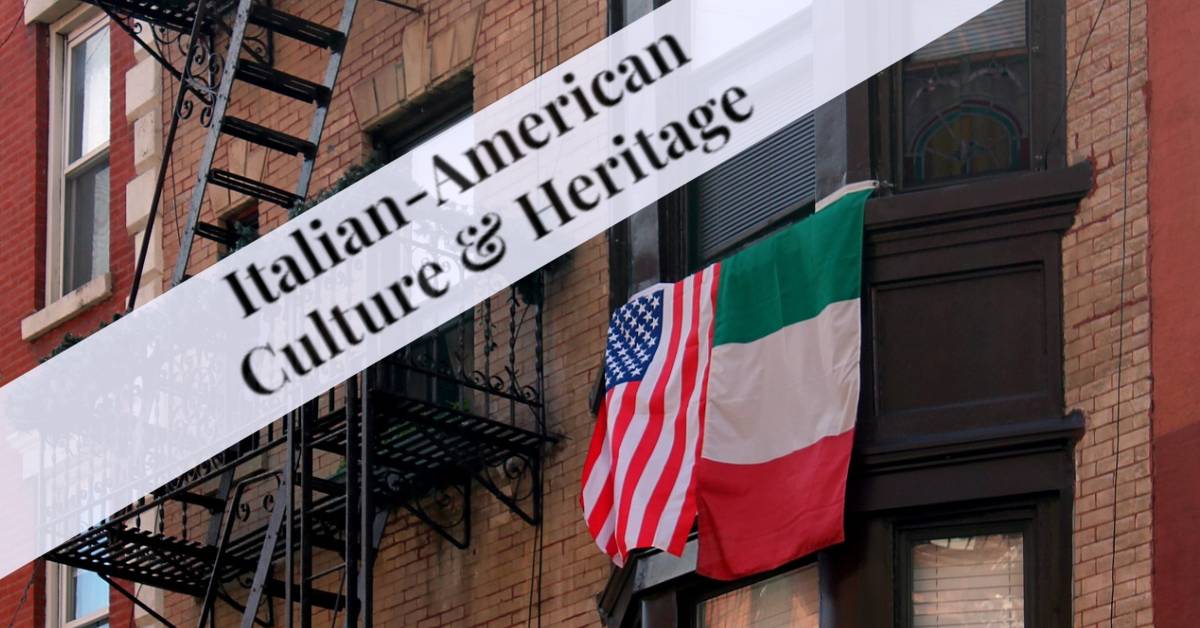The Italian-American Culture and Heritage Organization is proud to announce the launch of our new website. The site was created to celebrate the shared history of our ancestors and recognize the contributions of both Italians and Italian-Americans to modern day American society.
“We wanted to create a resource where Italian-Americans could learn about their history, and also contribute to the overall narrative by adding their personal stories. It’s the collection of these inspirational tales that really defines what it means to be Italian-American,” said Rick Zullo, co-founder of The Italian-American Culture and Heritage Organization.

The Italian-American Experience
Italian-American culture is a heritage that stems from the immigrant experience of Italians who came to the United States, mostly in the late 19th and early 20th centuries. This culture is a blend of European Italian and Italian-American traditions, and the customs that have evolved into a distinct and unique cultural identity.
Then during the first decades of the 1800s, a slow trickle of emigrants from Italy started. Some of them were prominent. Giuseppe Garibaldi, the liberator of Italy, lived for a time on Staten Island. Lorenzo da Ponte, the librettist of Mozart, spent later years in New York and even taught at Columbia College as their (first) professor of Italian literature.
But the 1880 census still reported a total of only 40,000 Italians in the United States, over a quarter of them in New York City. After the 1880s, Italians from the south of Italy began to depart in great numbers. With some exceptions they were poor, less educated, and much more provincial and unsophisticated than the Northerners.
In the 1880s, 268,000 Italians came to The United States, although many in this first wave went back home after saving enough money to improve their status in Italy. In the 1890s, 604,000 came, and from 1900 to 1910 the all-time high of 2,104,000. By the 1930s, one-sixth of New York’s teeming millions were from southern Italy. Today, Italians rank second in number only to Germans among American ethnic groups.
Italian-Americans’ Role in the History of the United States
Over the years, Italian-Americans began playing prominent roles in American history. There are sports heroes, such as Joe DiMaggio and Rocky Marciano. There are filmmakers such as Francis Ford Coppola and Martin Scorsese. Several Italian-Americans rose to prominence in politics such as Mario Cuomo, the mayor of New York City, then later his son Andrew, the governor of New York State.
Italians also have a great tradition in scientific innovation, all the way back to the likes of Leonardo DaVinci, Alessandro Volta, and Leonardo Fibonacci. This legacy continued with brilliant minds like Olinto De Pretto, whose formulas pre-dated Einstein’s, and Enrico Fermi, who was born in Rome, but emigrated to the U.S. to work on the Manhattan Project, leading to the development of the nuclear bomb.
Italian-American Communities Today
Italian-Americans are known for their strong family ties and close-knit community that has helped them thrive and rise to leadership roles in United States society. Hollywood has often exploited the dark side to this phenomena by portraying Italian-Americans in stereotypical roles as anti-hero mafiosi and gangsters in film. Meanwhile, real life Italian-Americans have contributed disproportionately in the arts, science, politics, and sports.
Italian-American cuisine is one of the most prominent and well-known aspects of this culture, characterized by the evolution of Mediterranean Italian food traditions that gave way to the ingredients found in the New World. Indeed, what is now considered “Italian food” in most of the world is closer to Italian-American food traditions than the original regional specialties of Italy.
As time goes on, families from different backgrounds merge and ethnic identity becomes, slowly, gradually, less prominent. Still, it’s safe to say that Italian-Americans in the 21st still carry the pride of their roots with them, and continue to celebrate the culture and traditions of their ancestors from the Old Country.
There are important Italian-American organizations all over the United States. If you’re interested in learning more about your cultural heritage, find your local chapter and get involved to help preserve our collective history.

